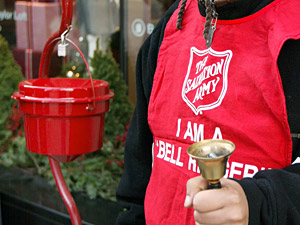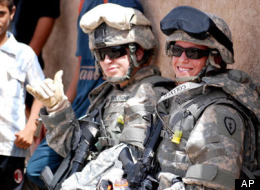
Most of us are familiar with the Salvation Army bell ringers who stand outside in the freezing cold collecting money for charity. I know that I always appreciate the fact that these people are giving their time and braving the cold to help others.
However, what I didn't realize, was that this was a paid position, not a volunteer based community service. I read an article which talked about the current state of the economy's effect on the Salvation Army. The positions of a bell ringer (which requires an application and then pays about minimal wage - $7.25 an hour) are extremely sought-after. According to the article, more and more people are applying for this job because of the economic downturn.
At first, I was a little bit outraged - getting paid to do charity?!
But then my friend Sophie brought up a good point: The Salvation army's mission is to help others, especially during the holiday season. By giving jobs to these people who otherwise wouldn't have work, they are helping those people who are in turn helping a huge number of people. When I look at it that way, I can see the good in the situation. However, this also means that everytime you drop some spare change into the collection jars, the money may be going to someone's paycheck, as opposed to 100% going to charity.
What do you think about this situation? Is it wrong to be paid for volunteer work in your opinion?






